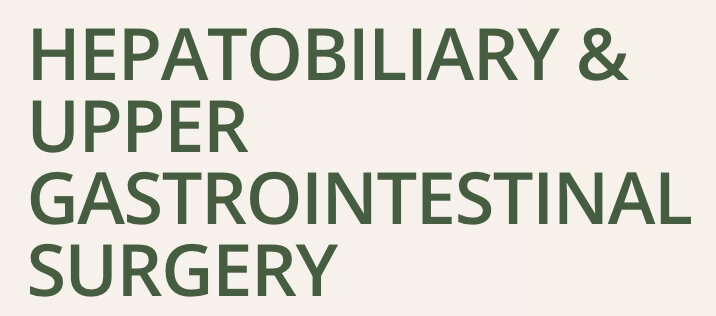
In-Hospital Enhanced Recovery Program
Your journey to enhanced recovery after surgery continues in hospital. Below is an ERAS program developed for pancreatic surgery aimed at expediting your recovery to get you home sooner. Please note that these are recommended guidelines and your program will be tailored to your recovery.
Heading Home…
After Pancreatic Surgery
You’ve made it through the first week of recovery. This is a huge accomplishment and you should feel incredibly proud! By the time you read this, you will have already spent this time recovering on the ward, surrounded by doctors, nurses, physiotherapists and dietitians. Heading home may seem like a scary task, knowing you won’t have constant access to these resources. Here, you and your family/carers become responsible for the next step of your recovery.
This information will provide you with resources to ensure you have every opportunity to have a positive and successful transition to everyday life.
The key things to remember for your recovery at home are:
Consuming food as tolerated
Staying hydrated
Returning to daily activities and exercise
Having adequate pain relief
Ensuring good quality sleep and not over sleeping
Staying safe - if you have any concerns, do not hesitate to contact your cancer nurse coordinator who will put you in touch with your doctors. If it is an emergency situation, dial “000”.
Pain Relief
When you are discharged from hospital, you will be provided with a discharge medication script. Make sure you have discussed this with your doctor and you are aware of the recommended pain relief while you are at home. If you run out of any of your medication, we recommend going to see your GP, but if there are any major issues with your recovery and pain, contact your Nurse Coordinator for advice.
While you should stay on top of your pain, keep in mind that some medications are “drugs of addiction”. Keep on top of your pain but be aware of how often you require your pain relief. Ensure that you taking regular paracetamol but ensure you do not go over the recommended dose on the packet.
(Click on “Learn More” to watch the video)
Wounds and Wound Dressings
You may go home with your wounds covered up by a surgical dressing. While you will have had dressing changes on the ward, it is likely that when you return home you will no longer need to change your dressings that often. Your dressing may fall off, by itself, and if so, that’s OK. Just ensure that the wound stays clean, dry and is not bleeding or oozing. If it is, contact your Cancer Nurse Coordinator for advice.
Depending on what stitches your surgeon used, you may need to return to have these stitches removed. While at home, try to avoid getting them wet, or if you do, be sure to gently pat dry with a towel. Some stitches dissolve by themselves – you will be advised by your surgeon.
A few things to remember:
You will see some redness around your wound– stitches are foreign to your body so you can expect some mild redness and reaction around the wound site. If the wound is painful, swollen, hot to touch and/or oozing/bleeding– then you should contact your Cancer Nurse Coordinator.
The wound will take to time to heal and you should expect to see a scar
Do not engage in extensive exercise or heavy lifting while your wound is healing.
Digestion, Nutrition & Diabetes
Digestion and Bowel Function
As the pancreas is responsible for producing some of the most important enzymes to help with digestion and bowel health, you may notice changes in your bowel movements and digestion. This may have been present prior to your diagnosis as a symptom of the cancer. Following your surgery, you may require a pancreatic enzyme supplement. It is important to observe your bowel movements and alert us if there are changes or problems.
As well as this disruption to your pancreatic enzymes you may find that surgery, chemotherapy and/or radiotherapy also play a role in your digestion, and this can include having a poor appetite, weight loss, abdominal bloating or excess gas. Continue reading the below for some advice to control this.
Digestion
Follow the discharge advice provided by your dietitian, this includes when to start progressing to solid foods (if you haven’t already in hospital)
Avoid foods that are high in saturated fats, are fried or greasy (avoid fast food)
If your doctor has prescribed pancreatic enzyme replacement ensure you follow directs and take these with all meals, including any snacks
Instead of 3 big meals a day, try to have several small meals a day, instead. Aim for 6 - 8 meals per day and space these 2-3 hours apart
Drink plenty of water to avoid dehydration, this will bring on symptoms like headaches and fatigue that will impact your recovery progress. However, make sure you are not taking large amounts of fluids all at once during your meal times. This can lead you feeling more full more quickly. If you can, try to ensure you drink something an hour before or after eating
Nutrition
If you haven’t been already, avoid alcohol!
You may be given nutritional supplements while in hospital, ensure you are incorporating these into your diet as they increase your daily calorie intake and will help you avoid losing any more weight.
Avoid excess sugar such as lollies and sugary soft drinks, and especially if you have glucose intolerance or dumping syndrome (see below for symptoms)
Glucose intolerance: increased thirst, blurred vision, fatigue and frequent urination.
Dumping syndrome: onset within 2 hours after a meal, flushed skin, abdominal pain, nausea and/or vomiting, diarrhea, dizziness or feeling lightheaded.
Diabetes
Following your diagnosis and surgery you may develop diabetes. This is due to the pancreas’ role in hormone production and glucose metabolism (how the body breaks down, stores and uses sugar). This can be a very intimidating thing for someone who has never lived with diabetes before and does require monitoring and dietary caution. The management of your diabetes will be through diet and lifestyle. Your dietician will set a plan if you do develop diabetes following surgery and we will keep an eye on your blood sugars during your post-operative follow up appointments.
Returning to Daily Activities
Driving
If you are eager to get behind the wheel again, refer to the list below and ensure you can do every single one of these things before you drive:
1. You are not taking any medication that might impact your awareness (for example some pain relief called opioids or any sleeping tablets)
2. Ensure you have your pain under control
3. Practice stamping your foot on the ground and make sure you can do this without experiencing pain, particularly at your wound site. This will allow you to break suddenly if required.
IMPORTANT: As convenient as driving yourself can be, remember to be sensible and safe to avoid endangering your life and the lives of others. If you do not feel safe and confident with driving, give it a miss. You can always contact your Cancer Nurse Coordinator to discuss this further and to seek reassurance if you’re worried.
Travelling
As you gain strength and confidence each day, you can start resuming and planning activities you would have done before your treatment. A great incentive is planning for a holiday. Many people view chemotherapy, radiotherapy, surgery and your recovery as a full time job, so a holiday marks a great reward for all your hard work. A few things to consider when organising a holiday include:
Flying: if you’re going to fly somewhere, make sure you stay on the ground for 6 - 8 weeks following your procedure, and be sure to have a check up with your surgeon just before you leave to give you the all clear.
Insurance: it can sometimes be difficult to get travel insurance post surgery so try to shop around for a good deal online.
Pace yourself: you might feel a new lease on life after your treatment, but just remember to take it easy. If you have the option of a fast paced, jam packed adventure holiday or a relaxing trip to Queensland to sit on the beach and read a book, maybe pick the beach! Give yourself a chance to recharge your batteries.
Returning to Work
The key thing to consider if you are returning to work is a work/life balance. Keep in mind that returning to work can assist your recovery and help you feel “back to normal”, but as with all of the advice in this booklet, don’t push yourself too hard. You will be able to return to work based on a few factors including:
Your job: if there is a lot of manual labor, you will be advised to wait a little longer and not engage in strenuous activity
How you recovery from surgery: this includes how you physically heal and emotionally heal. You may find yourself getting tired a lot quicker, just be aware of your body and listen to it.
Your surgeon will inform you when you can return to work, but generally speaking 2 - 4 months is advised, depending on your job. If you have concerns about returning to work and how you will cope, contact your Nurse Coordinator.
When will things feel “normal” again?
This is, perhaps, one of the most common questions asked by patient before surgery and after… and it’s a tricky one. Every person is different and every recovery will be different so there is no certain answer to this. For those that have had any chemotherapy/radiotherapy before and/or after surgery, this will probably knock you around. As a safe bet, give yourself a full 12 months. If you follow the advice on this website and continue to take charge of your recovery (including exercise, good quality sleep and pain relief) this will certainly help you in your recovery journey.
Don’t forget, it’s OK to not feel OK! You will have good days and bad days, but remember that you have access to support services through the hospital. Just talk to the Cancer Nurse Coordinator if you have concerns and are unsure of who to talk to about something.

